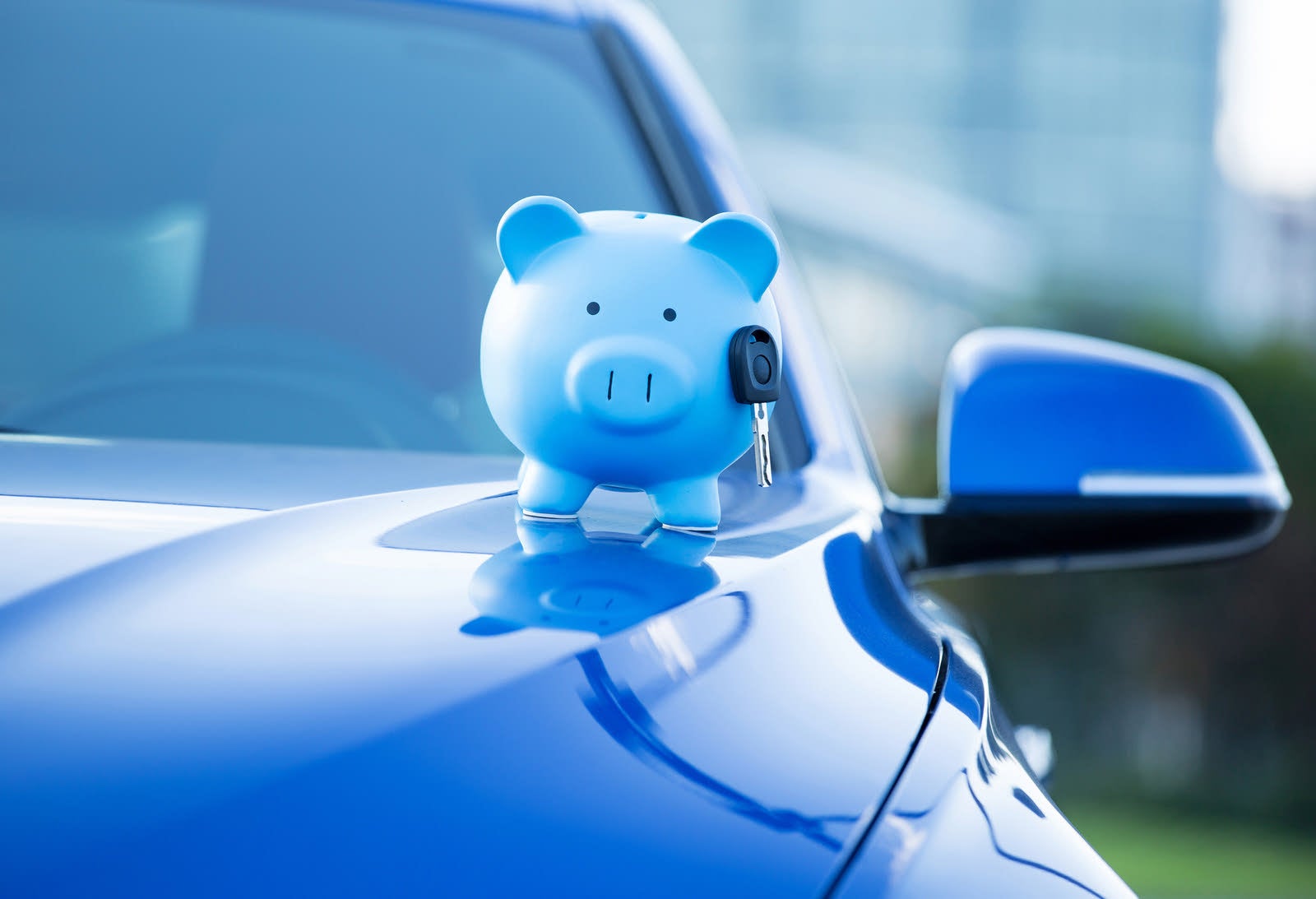Whether it’s for an unbeatable deal or your dream car, an out-of-state vehicle purchase can make a lot of sense. But there’s also a lot to consider when it comes to bringing a car out of state back to your home. Here, we’ll discuss the practicalities you might need to keep in mind if you are buying a vehicle in a different state.
How to Bring Home a Car You Bought Out-of-State
- Decide Whether You Should Go Get The Car or Ship It Home
- Get Car Insurance, Even If You’re Shipping the Car
- Get Temporary Registration
- Make Sure You Get All the Paperwork
- Ask If The Dealer Can Register the Car For You
- Research What You Need to Register the Car at Home
- Figure Out How to Pay for The Car
- Buying a Car Out of State and Driving it Home
1. Decide Whether You Should Go Get The Car or Ship It Home
Your new car needs to get to you somehow. Generally speaking, whether you’ve bought a new or used car, you have two options: You can go fetch the car yourself or ship it home.
The math is pretty simple on this one. If the car is reasonably close to a commercial airport, you can ask the dealer or private seller if they will pick you up there. You’ll want to add up the cost of a one-way plane ticket and estimate any fuel, lodging, and miscellaneous expenses along the way. The upside to this is that you could also consider your drive home to be a vacation—one with a big, drivable souvenir, that is. If you need to also do a trade in, however, you’ll probably be making the trip.
The cost of shipping a car out of state varies greatly depending on various factors, including the distance and the season. CarGurus Delivery can take much of the hassle out of shipping a vehicle.
2. Get Car Insurance, Even If You’re Shipping the Car
Every car needs valid proof of insurance to be operated on a public road, so it’s important to consider your insurance requirements. As you begin to finalize purchasing your car, be sure that you have added it to your provider’s plan. Your insurer will likely give you a 30-day temporary insurance card before an official card arrives in the mail.
That said, many states and insurance companies offer a grace period that extends your existing car insurance by up to 30 days after you buy the car. This is primarily intended for protection if you’re car buying on a weekend or a holiday when your insurance company’s office is closed. But the big caveat here is that you need to have current car insurance that covers another vehicle.
Simply put: If you know you’re going to buy the car, it’s worth the time to add it to your current insurance plan.
You should insure your car even if you plan to ship it. Technically, the car will be covered by the transport company’s insurance when it’s on the truck, but that coverage ends when the car is driven off. You will be uninsured even if you only plan to drive your new car from the truck to your garage.
3. Get Temporary Registration
An out-of-state car dealership will likely provide you with temporary registration that allows you to drive the car legally. How long this “temp tag” lasts varies by state, but most are in the 30- or 60-day range. That should give you ample time to drive the car to your home state and get it legally registered at your local DMV.
Things get trickier when you buy a car from a private party or if, for some reason, the dealership cannot provide a temporary registration. Some, but not all, states may offer a temporary permit that you can buy at a government office for a nominal fee. Texas, for instance, has what it calls a “One-Trip Permit” intended to transport the vehicle across state lines. That Texas permit won’t suffice if you buy a car in Massachusetts and drive it home to Maryland, though.
Your circumstances will be unique. It’s worth calling both your local motor vehicle registration office and the one in the state where you plan to acquire the car to see what solutions they offer.
Some states simply don’t have a legal workaround to drive a car home without a temporary registration. In these instances, you’ll almost certainly need to ship the vehicle.
4. Make Sure You Get All the Paperwork
You’ll need a small stack of paperwork to show that you have legally acquired the vehicle. This can vary slightly by state, though the list will generally include at least some of the following:
- A bill of sale showing the date purchased and price paid
- A title correctly signed and dated by the dealer or private seller and by you, if you bought the car outright
- A vehicle identification number (VIN) verification form
- Paperwork from a lender showing that the vehicle has a lienholder
Note that some documentation may also need to be notarized, though again, this will vary by state.
If you buy the car from a private party, you may need to ensure that whatever bill of sale you use has been approved by your local government office to enable a title transfer. Your department of motor vehicles—or whatever office handles vehicle registration—will likely have a free, printable bill of sale form available online.
5. Ask If The Dealer Can Register the Car For You
In some cases, dealers may be able to handle registration and titling services on your behalf. This is common in dealerships near state borders. For instance, a dealer in Kansas City, Kansas, will likely be very familiar with car registration just over the border in Missouri. At the very least, they will be able to guide you through the out-of-state purchase process and ensure you have everything you need.
Proximity isn’t critical, though. Dealers may also be able to use a third-party service that will mail the necessary documents directly to your home state’s relevant government offices on your behalf. You may still need to visit the government office to complete some of the paperwork or to physically collect your license plates, though.

6. Research What You Need to Register the Car at Home
You may not be done collecting papers just yet. Before registering the car in your home state, you may need a VIN inspection. These can often be completed at a police station or the motor vehicle department. In some states, a car dealer may also be able to fill one out on your behalf. The DMV website will be a good resource here.
Many areas will also require the vehicle to go through a safety inspection, an emissions test, or both, and the odometer reading (the mileage) may also be verified. Typically, new vehicles are exempted from this requirement, however, you will want to confirm with your local registration office.
A used vehicle might require extra steps in terms of smog testing, such as visiting a test-only facility.
7. Figure Out How to Pay for The Car
The car’s seller will want to be paid before you buy the car. If you’re buying it from a dealer, you may be able to use a variety of payment methods, even including a personal check or a traditional lender. The dealer will likely hold onto the vehicle’s title until your payment has cleared, after which they will mail it to you.
Buying a car from a private party requires trust on all sides. A bank-issued cashier’s check is one of the safest ways for you to pay for a vehicle, especially since it can be voided by your bank if, for some reason, you choose not to proceed with the purchase. A wire transfer is very difficult to reverse.
You may want to consider an escrow service. Some of these will allow you to specify terms of the sale, including clauses for things like an inspection period that allows you to back out of the deal if a major issue is uncovered. The seller will provide the service with the vehicle’s title, which will then be released to the buyer after the funds clear. In essence, the escrow holds onto all paperwork to make sure the deal is fair for both sides.
Keep in mind that before you get your car home, and receive your car title you may owe state sales tax when you pay your registration fees at the DMV, or in states such as California it is paid when the car is registered.

8. Prepare for Your Road Trip Home
If you plan to drive the car home, you’ll want to make sure it’s in good shape. This will likely be a non-issue for a new car, though a quick test drive and a visual inspection before you sign any paperwork is a good idea.
If you can’t lay eyes on the car before you make a long trek to pick it up, you’ll likely want the peace of mind provided by an independent pre-purchase inspection. Many automotive repair shops and dealerships offer this worthwhile service, which typically takes a couple of hours and costs a few hundred dollars. A pre-purchase inspection by a professional is good practice for just about any used car buy, even if the car is sitting right in front of you. A vehicle history report from a company like AutoCheck or Carfax will also provide some peace of mind.






